
William Windom was an American politician from Minnesota. He served as U.S. Representative from 1859 to 1869, and as U.S. Senator from 1870 to January 1871, from March 1871 to March 1881, and from November 1881 to 1883. He also served two non-consecutive times as Secretary of the Treasury from March to November 1881, and from 1889 to 1891, under three Presidents. He was a Republican. He was the great-grandfather of actor William Windom, who was named for him.

Morton Smith Wilkinson was an American politician.

Galusha Aaron Grow was an American politician, lawyer, writer and businessman, who served as 24th Speaker of the U.S. House of Representatives from 1861 to 1863. Elected as a Democrat in the 1850 congressional elections, he switched to the newly organized Republican Party in the mid-1850s when the Democratic Party tried to force the extension of slavery into western territories.

The 1890 United States House of Representatives elections were held for the most part on November 4, 1890, with five states holding theirs early in between June and October. They occurred in the middle of President Benjamin Harrison's term. Elections were held for 332 seats of the United States House of Representatives, representing 44 states, to serve in the 52nd United States Congress. Special elections were also held throughout the year.

The 1860–61 United States House of Representatives elections were held on various dates in various states between August 6, 1860, and October 24, 1861, before or after the first session of the 37th United States Congress convened on July 4, 1861. The number of House seats initially increased to 239 when California was apportioned an extra one, but these elections were affected by the outbreak of the American Civil War and resulted in over 56 vacancies.

The 36th United States Congress was a meeting of the legislative branch of the United States federal government, consisting of the United States Senate and the United States House of Representatives. It met in Washington, D.C. from March 4, 1859, to March 4, 1861, during the third and fourth years of James Buchanan's presidency. The apportionment of seats in the House of Representatives was based on the 1850 United States census. The Senate had a Democratic majority, and the House had a Republican plurality.
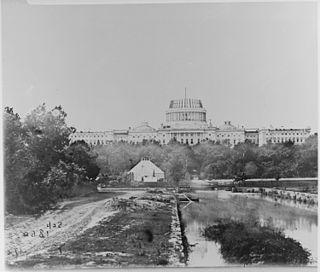
The 35th United States Congress was a meeting of the legislative branch of the United States federal government, consisting of the United States Senate and the United States House of Representatives. It met in Washington, D.C. from March 4, 1857, to March 4, 1859, during the first two years of James Buchanan's presidency. The apportionment of seats in the House of Representatives was based on the 1850 United States census. Both chambers had a Democratic majority.

The 1858–59 United States House of Representatives elections were held on various dates in various states between June 7, 1858, and December 1, 1859. Each state set its own date for its elections to the House of Representatives. 238 representatives were elected in the new state of Oregon, the pending new state of Kansas, and the other 32 states before the first session of the 36th United States Congress convened on December 5, 1859. They were held during President James Buchanan's term.
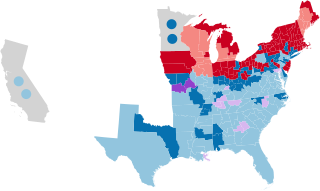
The 1856–57 United States House of Representatives elections were held on various dates in various states between August 4, 1856, and November 4, 1857. Each state set its own date for its elections to the House of Representatives. 236 representatives were elected in 31 states and the pending new state of Minnesota before the first session of the 35th United States Congress convened on December 7, 1857.

Charles Rollin Buckalew was an American lawyer, diplomat, and Democratic Party politician from Pennsylvania. He represented the state for one term in the United States Senate, where he was an advocate for proportional representation and cumulative voting, from 1863 to 1869.
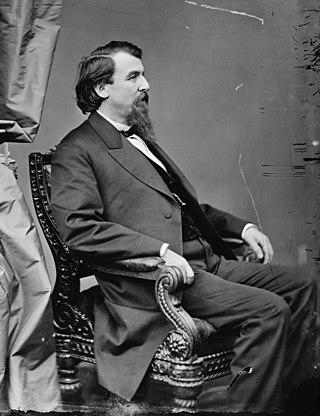
James Michael Cavanaugh was a U.S. Representative from Minnesota and a delegate from the Territory of Montana. He was born in Springfield, Massachusetts, July 4, 1823 and received an academic education. He engaged in newspaper work, studied law, and was admitted to the bar in 1854 and began practice in Davenport, Iowa. He then moved to Chatfield, Fillmore County, Minnesota, in 1854 and continued the practice of law; upon the admission of Minnesota as a State into the Union, in 1858, was elected as a Democrat to the thirty-fifth congress and served from May 11, 1858, to March 3, 1859; unsuccessful candidate for re-election in 1858 to the thirty-sixth congress; moved to Colorado in 1861 and resumed the practice of law; also engaged in mining; member of the State constitutional convention in 1865; moved to Montana in 1866; as a Democrat, he was elected a delegate to the fortieth and forty-first congresses ; unsuccessful candidate for renomination in 1870; engaged in the practice of law in New York City; returned to Colorado in 1879 and settled in Leadville, where he died October 30, 1879. He is buried in the Greenwood Cemetery in New York City.

The 1852–53 United States Senate elections were held on various dates in various states, coinciding with the 1852 presidential election. As these U.S. Senate elections were prior to the ratification of the Seventeenth Amendment in 1913, senators were chosen by state legislatures. Senators were elected over a wide range of time throughout 1852 and 1853, and a seat may have been filled months late or remained vacant due to legislative deadlock. In these elections, terms were up for the senators in Class 2.

The 1858–59 United States Senate elections were held on various dates in various states. As these U.S. Senate elections were prior to the ratification of the Seventeenth Amendment in 1913, senators were chosen by state legislatures. Senators were elected over a wide range of time throughout 1858 and 1859, and a seat may have been filled months late or remained vacant due to legislative deadlock. In these elections, terms were up for the senators in Class 2.
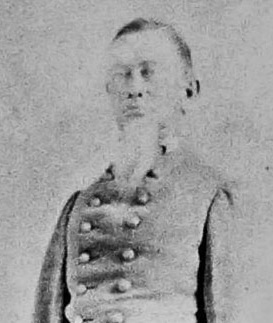
The 1858 United States House of Representatives election in Florida was held on Monday, October 4, 1858 to elect the single United States Representative from the state of Florida, one from the state's single at-large congressional district, to represent Florida in the 36th Congress. The election coincided with the elections of other offices, including various state and local elections.

California held its election September 7, 1859. From statehood to 1864, California's members were elected at-large, with the top finishers winning election.
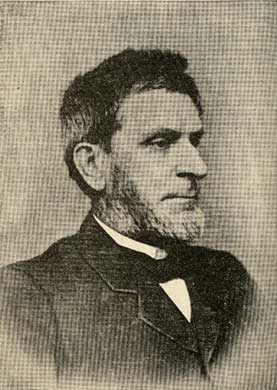
Ejliah Middlebrook Haines was an American politician and author. Born in New York, he came to Illinois with his brother John Charles and established one of the first villages in Lake County, Hainesville. Admitted to the bar in 1851, Haines wrote several notable law books. He was first elected to the Illinois House of Representatives in 1858 and served eight intermittent terms, including two as Speaker of the House. Staunchly independent after 1865, Haines was a leader in the movement against the Republican Party in Illinois before his death in 1889.
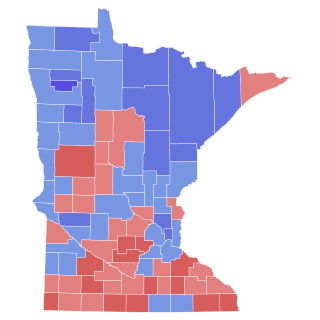
The 1958 United States Senate election in Minnesota took place on November 4, 1958. Democratic U.S. Representative Eugene McCarthy defeated incumbent Republican U.S. Senator Edward John Thye, who sought a third term. With his victory, McCarthy became the first Democrat ever to be popularly elected to Minnesota's Class 1 Senate seat, and marked the first time since 1859 that Democrats held both Senate seats in the state.

The 1923 United States Senate special election in Minnesota took place on July 16, 1923. The election was held to fill, for the remainder of the unexpired term, the seat in the United States Senate left vacant by Republican U.S. Senator Knute Nelson, who died in office on April 28, 1923. State Senator Magnus Johnson of the Farmer–Labor Party of Minnesota defeated Governor J. A. O. Preus of the Republican Party of Minnesota, and State Senator James A. Carley of the Minnesota Democratic Party, which, together with Henrik Shipstead's victory in 1922, brought both of Minnesota's seats in the United States Senate into the hands of the Farmer–Labor Party for the first time in history.
The 1859 United States Senate election in Minnesota took place for the state's Class II seat on December 15, 1859, by the Minnesota legislature in a joint convention. Democratic incumbent James Shields drew the short-term Class II seat lot when he was elected on December 19, 1857, prior to Minnesota statehood.


















